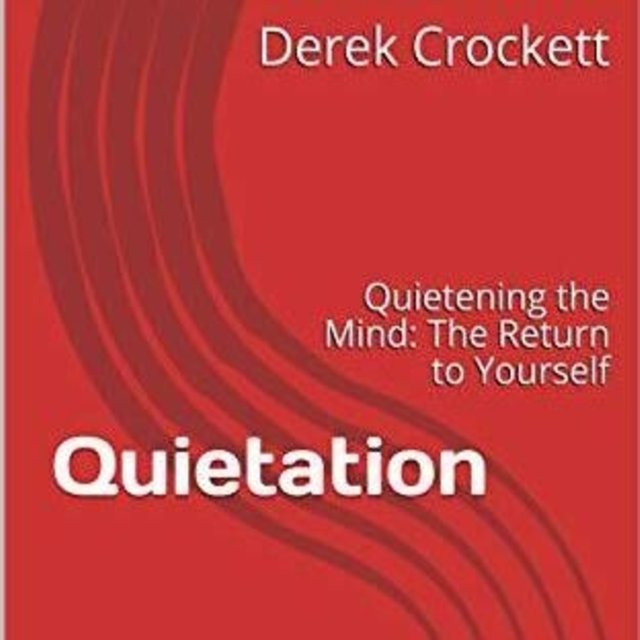Quietation, Quietening the Mind: The Return to Yourself

Derek Crockett, a long-time advisor to the Beyond the Rituals community, has written a fascinating book about the meditative practice of the Divine Law. The book is called Quietation, Quietening the Mind: The Return to Yourself. And it’s available now in paperback and eBook format at Amazon.com.
Quietation, as I mentioned earlier, is the meditative aspect of the Divine Law. It’s how the philosophy’s practitioners, to use a more familiar word, meditate. The practice is called Quietation because its purpose is to quieten the body and mind. Practitioners don’t meditate; they quietate!
Now, the word Quietation might seem cutesy, like a play on the words quiet and meditation, but it is a word in its own right. A noun, it means The action of quieting, the state of being quieted or quiet, peace. Although rarely used, the word Quietation has been around since the 16th century.
Like meditation, Quietation reduces stress, relieves anxiety, calms our demeanor, and enhances our focus. So, why Quietation and not meditation? What’s the difference?
Well, both are tools, and though they are similar, like all tools, they each have a specific purpose. The purpose of Quietation is to quiet the body and mind to facilitate a return to our true self, which is our connection to God’s Divine Essence. In simpler terms, Quietation helps to return us to the state where we can hear God’s guidance.
The book posits the premise that the personas we display, our social and religious indoctrination, and the responsibility of everyday living, fills our mind with noise, and prevents us from recognizing God’s guidance, through His Divine Essence, when we hear it within.
I’m quoting now from the introduction:
“We all have a core sense of self. Of whom we think we are. The ideal person we believe ourselves to be. But we rarely, if ever, encounter or experience that person. If that person exists, it lies buried, and perhaps, even lost, beneath myriad personalities.
In every aspect of our lives, we play many roles. Some we create, some others create for us. Some are appealing to others, and some, drive others away. All of them, however, contribute to how we interact with other people.” Unquote.
Later, in the introduction, Derek writes:
“Almost from birth, forces beyond our control subject us to what is, in essence, indoctrination. We conform to societal norms, accept our parent’s religion, and follow a predetermined educational standard. Our social status and the mores of our society shape our thinking. As well as control our behavior and transforms us into the person that will best enable us to thrive. And sometimes, we lose the person we are in the transformation.”
The book explains that the origin of Quietation is rooted in the Divine Law’s principle that humankind does not discern, share, or experience God as a collective, but as a personal experience; which firmly separates the reason to quietate, from why many, meditate.
Derek presents a solid argument for the inherent presence of God’s Divine Essence within and offers exercises designed to reenable our natural ability to recognize it when we hear it.
All-in-all Quietation is a fascinating read, and I highly recommend it.
So, while you’re thinking about it, pop over to amazon.com and purchase the paperback or the eBook. If you’re a kindle unlimited member, you can read the eBook free.
And after you’ve read it and learned to quietate, review it and let us know what you think about it.